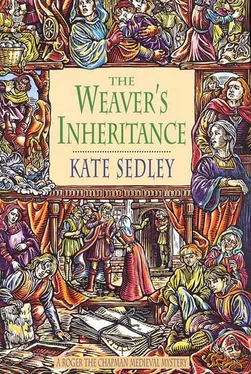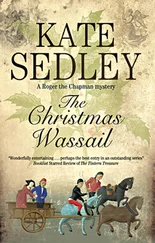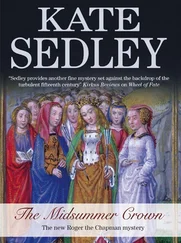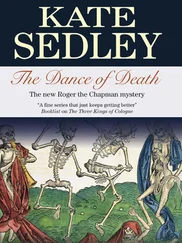Kate Sedley - The Weaver's inheritance
Здесь есть возможность читать онлайн «Kate Sedley - The Weaver's inheritance» весь текст электронной книги совершенно бесплатно (целиком полную версию без сокращений). В некоторых случаях можно слушать аудио, скачать через торрент в формате fb2 и присутствует краткое содержание. Жанр: Исторический детектив, на английском языке. Описание произведения, (предисловие) а так же отзывы посетителей доступны на портале библиотеки ЛибКат.
- Название:The Weaver's inheritance
- Автор:
- Жанр:
- Год:неизвестен
- ISBN:нет данных
- Рейтинг книги:4 / 5. Голосов: 1
-
Избранное:Добавить в избранное
- Отзывы:
-
Ваша оценка:
- 80
- 1
- 2
- 3
- 4
- 5
The Weaver's inheritance: краткое содержание, описание и аннотация
Предлагаем к чтению аннотацию, описание, краткое содержание или предисловие (зависит от того, что написал сам автор книги «The Weaver's inheritance»). Если вы не нашли необходимую информацию о книге — напишите в комментариях, мы постараемся отыскать её.
The Weaver's inheritance — читать онлайн бесплатно полную книгу (весь текст) целиком
Ниже представлен текст книги, разбитый по страницам. Система сохранения места последней прочитанной страницы, позволяет с удобством читать онлайн бесплатно книгу «The Weaver's inheritance», без необходимости каждый раз заново искать на чём Вы остановились. Поставьте закладку, и сможете в любой момент перейти на страницу, на которой закончили чтение.
Интервал:
Закладка:
Alison nodded her approval and rang the little silver bell which stood on a table beside her chair. A servant answered the summons and, two minutes later, I was standing outside the house, thankful that William Burnett had not reappeared.
Chapter Seven
I approached Alderman Weaver’s house in Broad Street from the back, through the garden gate that opened into Tower Lane.
The garden itself, after I had lifted the latch and entered, was much as I remembered it, except that the apple and pear trees were at present leafless, the bed of herbs and the border of flowers along one wall locked in their winter sleep. A thin layer of frost, untouched by the feeble midday sun, still coated the pathway and the roof of the lean-to privy, a sure indication that the bad weather was tightening its grip; and a sudden sharp intake of breath made me sneeze, as the cold irritated the back of my nose and throat. I knocked on the outer door of the kitchen.
It was opened by one of the maids. ‘Yes?’ she queried. ‘What do you want?’
I pointed to my pack. ‘Is there anything you or the housekeeper might be needing?’
The girl looked dubious, but her eyes had brightened at the prospect of some relief in the monotonous routine of a dull afternoon. ‘Wait there! I’ll ask Dame Pernelle,’ she said, and withdrew indoors.
While I stamped my feet and blew on my fingers to try to keep warm, I could not help but recall the first time I had visited this house in the company of Marjorie Dyer, a distant kinswoman of the widowed Alderman, who had then been in charge of his domestic comforts. Three years later, when I again had cause to contact Alfred Weaver, Marjorie had been replaced by a veritable dragon of a woman, and I could only hope that her successor was of a sweeter disposition.
I was not disappointed. Dame Pernelle was a plump, motherly-looking creature, somewhere, I guessed, in her early or middle forties, with large, soft blue eyes and a double chin. The young maid’s attitude towards her appeared to be familiar but respectful, suggesting that the housekeeper ruled her little kingdom by persuasion rather than force, by kindness rather than fear. She peered shortsightedly at me, seemed reassured by what she saw, and indicated that I should step inside.
The kitchen, too, was much as I remembered it, with its stone-flagged, rush-strewn floor, its water-butt and ale-vat standing in separate corners, sides of salted beef and mutton and bunches of herbs hanging from hooks in the ceiling. A delicious smell of baking bread came from the ovens.
A second maid joined us at the table as I started to set out my wares. ‘I know you,’ she grinned. ‘You’re Margaret Walker’s son-in-law. You live with her in Redcliffe. I’ve seen you when I’ve been visiting my aunt.’
Dame Pernelle, who had drawn up a stool, regarded me with sudden keenness. ‘Aha! You’re that chapman, are you?’ The blue eyes, so guileless a moment before, now twinkled knowingly, as she fingered a carved ivory needlecase. ‘This is very pretty — if, that is, you’re really interested in selling us anything.’
‘Why shouldn’t I be?’ I asked, all innocence. ‘For what other purpose would I be here?’
The housekeeper chuckled. ‘It’s no good trying to pull the wool over my eyes, lad. I’ve heard talk of you from some of Mistress Walker’s neighbours.’
‘And what do they say of me?’ I wanted to know.
‘Oh, some say that you’re far too nosy, always poking and prying into people’s business. Others, that you’re very clever at solving riddles, and that thanks to you, some evil men and women, who might otherwise have escaped punishment, have been brought to justice. There have also been whispers of friends in high places … But I can see by the look on your face that you’d rather I didn’t talk about that.’
‘The gossip’s bound to be exaggerated, anyway,’ I answered curtly. ‘Such rumours usually are. Let me recommend to you this length of blue silk ribbon. Florentine,’ I added coaxingly. ‘It arrived in Bristol on a merchantman only yesterday morning.’
Dame Pernelle once again gave her rich, throaty chuckle. ‘And what would I do with it, pray? When would I have a chance to wear it? Or either of these silly girls, here, for that matter? No, no! Save it for someone young and pretty who can afford it, and tell me why you’ve really come.’ She lowered her voice and asked confidentially, ‘Have you been sent by Mistress Burnett to see if you can make head or tail of this strange business that’s so perplexing to us all?’
The housekeeper’s appearance was deceptive. Beneath her plumply soft exterior, and behind the rather vacuous features, a shrewd mind was at work. It was no use pretending, so I gave her what I hoped was my most disarming grin. ‘You’re right, there is no pulling the wool over your eyes. Although to say that I was sent by Mistress Burnett is perhaps somewhat misleading. Let’s just say that I have agreed to find out what I can.’
Dame Pernelle looked pleased with herself and her own percipience. She was about to make some further remark, when she recollected the maids who, their interest in the contents of my pack temporarily forgotten, were staring at us with a fascinated, if not entirely comprehending, gaze. ‘You’re good girls,’ she said, rising to her feet and patting them both on the head. ‘You’ve worked hard this morning and deserve a treat. Later on, I’ll buy each of you something from Roger’s pack, but for now, I must speak privately with him.’ And she gave a slight jerk of the head, indicating that I should follow her.
Dame Pernelle led the way to a small, tapestry-hung closet on the opposite side of the hall, that evidently served as her hideaway. The air struck chill as there was no hearth and therefore no fire; but as there was only one small window, through which the draughts could seep, it was not as cold as it might otherwise have been. She lit a couple of candles before closing the door and waving me to a seat. When I had lowered my bulk on to a bench which ran along one wall, the dame plumped herself down in the room’s only chair. ‘Now,’ she said, ‘we can talk without the girls overhearing everything we say. What do you want to know?’
I shrugged. ‘That’s easy. Do you believe this young man to be Clement Weaver or do you think him an impostor? No, wait! I may be putting the cart before the horse. First of all, were you previously acquainted with Clement?’
‘Oh yes! I knew him well. My elder sister and I grew up in the city, and our father, Robin Dando, was a vintner with a shop in Wine Street, close by the castle foregate. When Clement and Alison were young, they used sometimes to accompany the Alderman when he came to the shop to buy wine. You see, my father imported several excellent wines from Bordeaux to which Alfred Weaver was extremely partial. And then, when I was eighteen, my sister Alice married the Alderman’s younger brother, John.’
This revelation was entirely unexpected and I exclaimed in astonishment. ‘You’re Alice Weaver’s sister? I had no notion!’ I scrutinized her more closely. ‘But now that you say, yes, I can see a likeness.’
‘You’ve met Alice?’ It was Dame Pernelle’s turn to be surprised.
‘Six years ago, in Faringdon Without, when I was searching for Clement.’
The housekeeper nodded. ‘She and John went to London to live almost as soon as they were married. He had an idea he could make his fortune if he set up his looms there instead of in Redcliffe. Myself, I think it was a mistake; and I fancy Alice does, too, only she’s too loyal to say so.’ She echoed Alison Burnett’s words. ‘John’s comfortably off, I don’t deny that, but he hasn’t made the money that his brother has. He should have stayed in Bristol.’
Читать дальшеИнтервал:
Закладка:
Похожие книги на «The Weaver's inheritance»
Представляем Вашему вниманию похожие книги на «The Weaver's inheritance» списком для выбора. Мы отобрали схожую по названию и смыслу литературу в надежде предоставить читателям больше вариантов отыскать новые, интересные, ещё непрочитанные произведения.
Обсуждение, отзывы о книге «The Weaver's inheritance» и просто собственные мнения читателей. Оставьте ваши комментарии, напишите, что Вы думаете о произведении, его смысле или главных героях. Укажите что конкретно понравилось, а что нет, и почему Вы так считаете.












